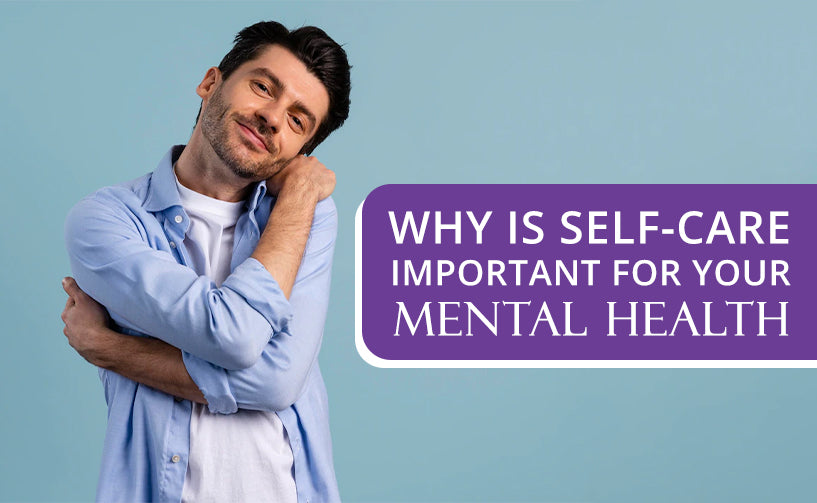The term “self-care” has become a hot topic in the past recent years, especially in the health and wellness industry. We have witnessed numerous health and wellness companies, services, fitness experts and more promoting the idea of “self-care”. But what exactly is self-care and how does it impact our mental well-being? Can we achieve self-care through these wellness products and plans? How do we go about achieving self-care in the most fulfilling way? Read on and learn more about what self-care really is and how it can affect our mental health.
What Is Self-Care?
When it comes to self-care, most people often mistook it for self-indulgence or being selfish. However, this is far from the truth. Self-care is providing adequate attention to your own psychological and emotional wellbeing. Simply put, it means taking care of yourself and doing all the things you need to do to remain healthy, reduce stress, and feel as mentally well as possible.
That being said, self-care is not a one-size-fits-all concept. In fact, it can be different from person to person. For extroverted people, being around other people in a social setting may meet their emotional needs. Introverted people may prefer an evening watching a movie with a close friend or significant other to get their social needs met. Some swear by getting a relaxing massage, facial masks, and reading a book, while others want to hit the gym, take a road trip, drink a coffee, or even take some time to declutter their homes. Some even consider attending therapy sessions to address their emotional needs, trauma, or mental illnesses as part of a fulfilling self-care journey. Hence, there are practically endless ways to practice self-care and it all boils down to doing things that you enjoy or need.

How Does Self-care Affect Your Mental Health?
Since self-care is all about caring for your physical, emotional, and psychological wellbeing, it is no surprise that it can have an impact on your mental health.
Practising self-care can help you recognize and appreciate the kind of activities or tasks that are necessary for your wellbeing, to help soothe negative symptoms of a mental illness or stress, or to simply bring you pleasure or relaxation. On top of that, self-care is a practice that deeply relies on increased self-awareness, which can be beneficial for individuals who are dealing with a mental illness. Practising self-awareness can help you to recognize patterns in your emotions, including events or situations that can trigger worsened symptoms.
That does not mean that self-care is the cure for mental or physical illnesses. While self-care can help people with conditions like mental illnesses or chronic illnesses, it also has been found that many people fail to provide adequate self-care amid a flare-up of symptoms. Also Read: MEDITATION: Excellent Exercise For The Brain
Types of Self-Care
Self-care could be anything that brings you joy and happiness to your life -anything that makes you feel cared for, even if it is you caring for yourself. Experts have categorised self-care into three main categories, namely:
- Emotional self-care, such as self-talk, saying “no” to things that cause unnecessary stress, permitting yourself to take a pause, or going out for a weekend dinner.
- Physical self-care, such as prioritizing sleep, adopting an exercise routine, and adopting a healthy, nourishing diet.
- Spiritual self-care, such as attending a religious service, meditating, spending time in nature, incorporating regular acts of kindness into your day, or keeping a gratitude journal
How to Practice Self-Care for your Mental Health
Self-care techniques and general lifestyle changes can help manage the symptoms of many mental health problems. They may also help prevent some problems from developing or getting worse.
Practising self-care does not have to be an elaborate, expensive, or labour-intensive task. You may not even need to go out of your way to practice self-care, just learn to observe how your routine affects your mood and functioning. Here are some ideas to help you get started on your self-care journey to support better mental well-being:
- Determine which activities bring you joy, replenish your energy, and restore your balance.
- Start each day by paying attention to your breath for five minutes and setting intentions for the day.
- Practice healthy sleep habits and listen to your body’s needs. Too many people are sleep deprived, and it takes a toll on our physical and mental health.
- Identifying when you are feeling overwhelmed, depressed, or angry and separating yourself from whatever situation is fueling that feeling.
- Be more physically active. Do exercises when possible, such as going on a walk, jogging, doing yoga, or participating in recreational sports.
- Practice healthy eating habits. Eating regularly can help you feel better. While healthy eating is a great form of self-care, so is simply being sure to eat something each day.
- If a beauty or skincare routine helps you, set aside time to pamper yourself regularly. You might be surprised at the difference even a little bit of time to focus on yourself can help.
- Set aside time to talk with your therapist or a trusted friend, read, reflect, journal, or otherwise engage with your thoughts. Self-awareness is an important part of self-care, so do not neglect your emotions.

When you need care and extra attention for your mental health, Preserva Wellness, with its healthy range of herbal-based mental health boosters are here to help calm your nerves and promote mental peace and clarity in your life! Also Read: 5 Best Practices For Better Mental Health
Formulated using powerful herbs and potent superfoods, Preserva Wellness’ herbal-based mental health boosters, which include Stresaway Tablets, Daily Calm Tea and Blue Pea Tea are the answer to a healthy, enhanced nervous system. The unique combination of potent ingredients is clinically designed to help clear the mind, improve memory, enhance brain function and naturally relieve stress and anxiety safely and effectively. These unique trios are formulated using real ingredients that are carefully sourced for their unique and powerful therapeutic benefits. They are 100% plant-based, sugar-free, no chemicals, no GMOs and completely safe for consumption.
The Bottom Line
Adopting self-care tips into your daily or weekly routine is not only vital for your mental health. Not to mention we also experience more joy, make better decisions, build stronger relationships and communicate more effectively. Your self-care options will depend on what works best for you, what you enjoy, and your energy levels, personality, and other factors. Never feel guilty for taking care of yourself. You deserve it.





